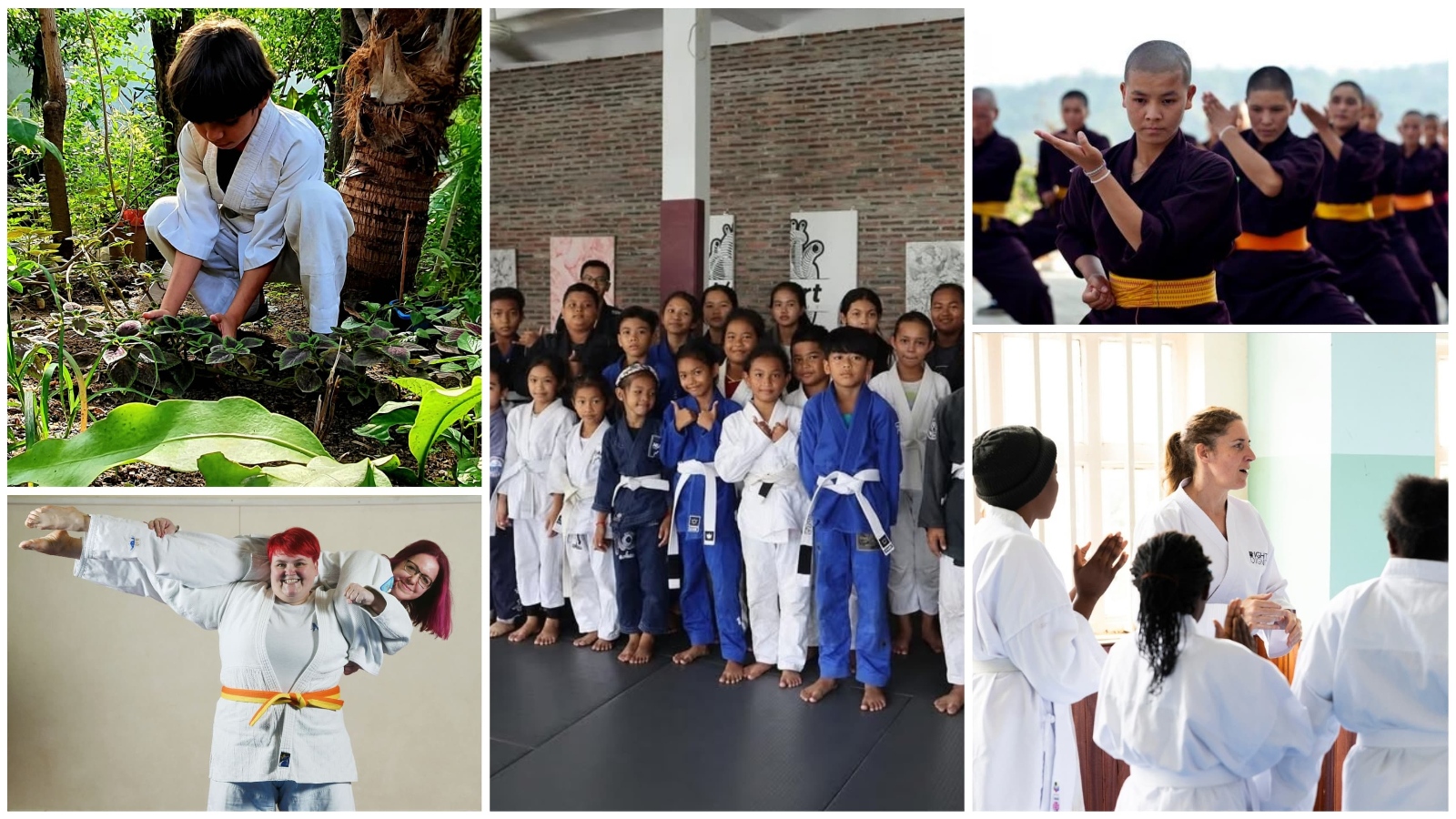
Empowering Communities Through Sport: CSocD63 UN Side Event Highlights Martial Arts as Catalyst for Sustainable Development
New York, February 14, 2024 — The webinar “Empowering Communities Through Sport: Real Voices, Real Change” brought together global leaders, athletes, and advocates to demonstrate how martial arts and sports-based initiatives are driving progress toward the 2030 Agenda for Sustainable Development. Hosted during the 63rd Session of the UN Commission for Social Development (CSocD63), the event aligned with this year’s priority theme of strengthening social inclusion, solidarity, and cohesion through innovative solutions.
Moderated by Inês Crespo, a volunteer at the Jadir Taekwondo Association (AJTKD), the session featured social projects from seven organizations across seven countries. Projects showcased how martial arts programs advance health, gender equality, environmental action, and peacebuilding. Jadir Figueira, Founder of Brazil’s AJTKD, opened the event by sharing his journey from a Rio de Janeiro community to managing Brazil’s national team and becoming a global leader in the sport. “My journey in sports began thanks to a social program in Rio de Janeiro. Since then, I have dedicated my life to transforming the lives of children and young people through sport,” he said.
Key Initiatives and Voices
- Kung Fu Nuns (Nepal): Smridhi Marwah of Live to Love International and two young nuns, Jigme Buddha Devi and Jigme Uma Devi, showcased how nuns from the Drukpa Lineage defy gender norms through martial arts while leading health and environmental campaigns. “The nuns are Buddhist, but at the same time, they want to help people of all religions, genders, and races around the world,” Marwah noted.
- Project AoKas (Cambodia): Hour SengHong of Inclusive Cambodia highlighted how the jiu-jitsu program unites disabled and non-disabled youth. “Through the inclusive nature of the program, children from diverse backgrounds can form friendships and build a sense of community.”
- Fight for Dignity (France/Congo): Founded by world karate champion Laurence Fischer, the organization uses karate to help survivors of gender-based violence rebuild confidence. “Since 2017, we have supported more than 9,000 women,” Fischer emphasized.
- Kicking for Nature (Brazil): A flagship initiative of AJTKD, the program integrates taekwondo training with environmental education, requiring students to participate in tree planting and conservation efforts as part of their belt promotions. The program’s innovative approach to combining sports and sustainability was recognized internationally, including through the BBC Green Sport Award.
- SPORTS20 (Germany): Co-founder Tanja Ferkau outlined how the SPORTS20 Framework translates the UN’s Sustainable Development Goals into actionable frameworks for sports organizations. “Sport itself cannot become sustainable without involving all the other sectors,” she asserted.
- Judo Golovec (Slovenia): Spela Lampe showed how the project offers free judo to vulnerable women, including survivors of abuse.
- David Taekwondo Association (Brazil): José de Oliveira showed how the organization provides free taekwondo classes to underserved communities in Rio de Janeiro.
Interactive polls revealed attendees’ views on sport’s role in the 2030 Agenda, with “education and awareness of global issues” emerging as a top priority.
Closing with Inspiration
The webinar concluded with a panel discussion featuring event speakers, who shared their insights on starting and sustaining “sport for good” programs. Smridhi Marwah of Live to Love International left the audience with a powerful message: “Just take that first step, and the path will create itself.” This sentiment resonated throughout the event, underscoring the transformative power of sport to build resilient, inclusive communities.
Source: Jadir Taekwondo Association
 Welcome to the United Nations
Welcome to the United Nations